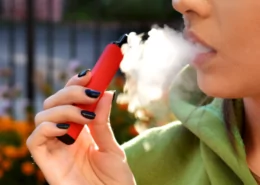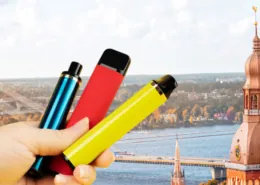Malaysian Experts Advocate Stricter Vape Controls Over Total Ban
Public health experts in Malaysia are arguing for stricter, risk-proportionate controls on vape products rather than pursuing an outright ban, suggesting a more nuanced approach is needed to address the complexities of vaping.
Dr. Sharifa Ezat Wan Puteh, a public health expert from Universiti Kebangsaan Malaysia, believes that regulations should differentiate based on product risk. She suggests this approach could allow for safer, regulated alternatives, such as medical-grade, lab-certified vape products, specifically for adult smokers who struggle to quit traditional cigarettes. Dr. Sharifa also dismissed revisiting policies like the Generational End Game (GEG), which aimed to ban tobacco sales based on birth year, citing poor results in other countries like New Zealand. The GEG provision was previously removed from Malaysia’s Control of Smoking Products for Public Health Bill 2023.
A major concern highlighted is the prevalence of illicit vape products containing dangerous substances. Deputy Inspector-General of Police Datuk Seri Ayob Khan Mydin Pitchay recently revealed alarming findings, including the presence of methamphetamine, ecstasy, and even fentanyl in seized vape liquids, sometimes used by minors as young as 13. Dr. Sharifa stressed the need for authorities to clamp down hard on the import of these unregulated products to restrict black market availability, particularly to adolescents.
Echoing the call for regulation over prohibition, former deputy health minister Dr. Lee Boon Chye emphasized measures to reduce the appeal of vaping, especially to young people. He suggested implementing plain packaging similar to cigarettes, limiting nicotine levels in e-liquids, and removing fruity flavors known to attract younger users. Dr. Lee also stressed ensuring products are free from adulterated illicit substances. While acknowledging the risks posed by the largely unchecked growth of the vape industry, he deemed banning the now multi-billion ringgit sector “extremely difficult.” Both experts see the existing 2023 tobacco control bill as the most practical framework for regulating the industry effectively, focusing on controlling content, reducing appeal, and preventing illegal trade.
- Malaysia Negeri Sembilan Backs Vape Ban, Awaits Clear Laws - August 5, 2025
- Is It Illegal to Vape or Smoke While Driving in Massachusetts? - August 5, 2025
- Austria Plans to Ban Disposable E-Cigarettes - August 5, 2025








